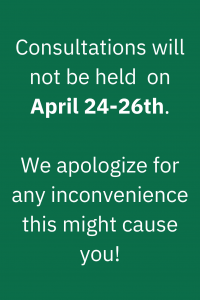
How should you plan your return?
- Prepare the necessary documents in advance
There is no general list of documents that you need to bring when returning from abroad − it all depends on your personal situation. If you want to receive social benefits when you return to Lithuania from an EU/EEA country, Switzerland, or the UK, you should make sure you have the appropriate European forms to aggregate periods of work abroad.
To claim social unemployment insurance benefits in Lithuania after you have aggregated periods of employment abroad, you will need to submit a PD U1 document to Sodra. If you are already receiving unemployment benefits in another EU/EEA country, the UK, or Switzerland, you can export them to Lithuania with a PD U2. You will then be able to look for a job in Lithuania while receiving unemployment benefits from the foreign country. The E104 form certificate will be useful if you don’t have the required periods in Lithuania and want to get sickness, maternity, or parental benefits here.
If you move to Lithuania but will still be working abroad for a while, don’t forget to take your European Health Insurance Card (EHIC) when you leave − it is issued by the state health insurance institution of the country where you were previously living. We also advise you to ask the health insurance institution in the country where you work to issue you an S1 form, which, if submitted in Lithuania, will allow you to receive free health services in the same way as residents who pay compulsory health insurance premiums in Lithuania.
-
Find a job before you return to Lithuania
It’s a good idea to start looking for a job while you are still abroad. Many employers are adapting to their candidates and conducting interviews remotely. Once you’re back in your homeland and have a job, you won’t have to worry about paying compulsory health insurance and you’ll have a secure source of income.
If you are planning to return to Lithuania with a job offer, you may be able to get financial support for relocation through the EURES Targeted Mobility Scheme (TMS).
You can meet potential employers and even start negotiating the terms of a possible job while you are still abroad through the services provided by the “Gal į Lietuvą?” [Maybe back to Lithuania?] project. You can find high-skill jobs in international companies, where you can successfully apply your experience gained abroad, on the Work in Lithuania website. If you are thinking of starting a business, it is useful to know about business forms, compulsory taxes, and government support.
-
If you have children, think about what kind of kindergarten or school they will attend
If you are returning with children, make sure they have time and opportunities to adapt. If your child is pre-school age, check the kindergarten situation in your municipality: what kindergartens are available, what the enrolment procedure is, how many spots are available, whether it is possible to register your child before you return, etc.
If you are returning with school-age children, they may receive educational support. Lithuania has a network of schools with experience in welcoming returning children and integrating children with migration experience into the education system. Your child’s education will receive extra funding, and you may be able to get extra Lithuanian language or lessons in other subjects. Contact the school of your choice in advance to discuss your needs and expectations.
Children who have difficulty speaking Lithuanian can improve their language skills by studying in Lithuania remotely or at a Lithuanian language school abroad before they return.
-
If you are returning with foreign family members, think about their adaptation
When returning with foreign family members, it is a good idea to check in advance whether they need a visa to come to Lithuania, what kind of residence permit they can get in Lithuania, and what documents they will need to submit when applying for a residence permit. Family members of a Lithuanian national can come to Lithuania from abroad to live with them and apply for both a temporary permit and a permanent residence permit. When applying for a permanent residence permit in Lithuania, you need to prove that you and your family member lived abroad before coming to Lithuania. Make sure you have the documents in advance to prove your family ties; statements about the availability of sufficient funds for living; the possibility of declaring your residence in Lithuania; and a substantiation and assessment of non-conviction.
-
If you are returning after getting married or having a child abroad
If you are returning after getting married abroad or after the birth of a child, please remember that the new family members must be registered with the Lithuanian authorities. Find out what documents you’ll need and how to register a child born abroad and a marriage/divorce abroad.
If you are still planning your wedding, you may find the information on marriages with foreigners useful.







